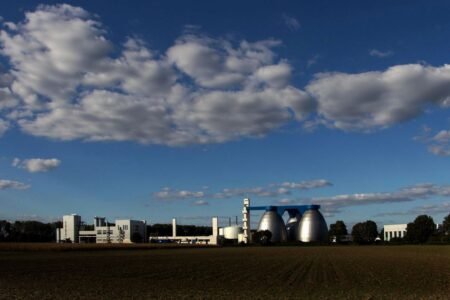(BRUSSELS) – The EU will reduce the use of pesticides by 50 per cent by 2030 in proposals announced Wednesday by the Commission to restore damaged ecosystems and bring nature back across Europe.
The proposal for a Nature Restoration Law is a key step in avoiding ecosystem collapse and preventing the worst impacts of climate change and biodiversity loss. Restoring EU wetlands, rivers, forests, grasslands, marine ecosystems, urban environments and the species they host is a crucial and cost-effective investment: into our food security, climate resilience, health, and well-being.
In the same vein, the new rules on chemical pesticides will reduce the environmental footprint of the EU’s food system, protect the health and well-being of citizens and agricultural workers, and help mitigate the economic losses that we are already incurring due to declining soil health and pesticide-induced pollinator loss.
The targets proposed include:
- Reversing the decline of pollinator populations by 2030 and increasing their populations from there on,
- No net loss of green urban spaces by 2030, a 5% increase by 2050, a minimum of 10% tree canopy cover in every European city, town, and suburb, and net gain of green space that is integrated to buildings and infrastructure,
- In agricultural ecosystems, overall increase of biodiversity, and a positive trend for grassland butterflies, farmland birds, organic carbon in cropland mineral soils and high-diversity landscape features on agricultural land.
- Restoration and rewetting of drained peatlands under agricultural use and in peat extraction sites,
- In forest ecosystems, overall increase of biodiversity and a positive trend for forest connectivity, deadwood, share of uneven-aged forests, forest birds and stock of organic carbon,
- Restoring marine habitats such as seagrasses or sediment bottoms, and restoring the habitats of iconic marine species such as dolphins and porpoises, sharks and seabirds,
- Removing river barriers so that at least 25 000 km of rivers would be turned into free-flowing rivers by 2030.
The proposal to reduce the use of chemical pesticides is aimed at halting biodiversity loss and helping to build sustainable food systems, whilst ensuring lasting food security and protecting health.Scientists and citizens are increasingly concerned about the use of pesticides and the build-up of their residues and metabolites in the environment. In the final report of the Conference on the Future of Europe citizens specifically requested to address the use and risk of pesticides. However, the current rules of the Sustainable Use of Pesticides Directive have proven to be too weak and have been unevenly implemented. Also, insufficient progress has been made in the use of Integrated Pest Management as well as other alternative approaches. Chemical pesticides harm human health and cause biodiversity decline in agricultural areas. They contaminate the air, the water and the wider environment. The Commission is therefore proposing clear and binding rules:
- Legally binding targets at EU and national level to reduce by 50% the use and the risk of chemical pesticides and the use of the more hazardous pesticides by 2030. Member States will set their own national reduction targets within defined parameters to ensure that the EU wide targets are achieved. Strict new rules on environmentally friendly pest control: New measures will ensure that all farmers and other professional pesticide users practice Integrated Pest Management (IPM), in which alternative environmentally methods of pest prevention and control are considered first, before chemical pesticides may be used as a last resort measure. The measures also include mandatory record keeping for farmers and other professional users. In addition, Member States have to establish crop-specific rules identifying the alternatives to be used instead of chemical pesticides.
- A ban on all pesticides in sensitive areas. The use of all pesticides will be prohibited in places such as urban green areas, including public parks or gardens, playgrounds, schools, recreation or sports grounds, public paths and protected areas in accordance with Natura 2000 and any ecologically sensitive area to be preserved for threatened pollinators. This new rules will remove chemical pesticides from our proximity in our everyday lives.
Both proposals will now be discussed by the European Parliament and the Council.
Nature restoration - background guide
Factsheet on Nature Restoration Law
Factsheet on Biodiversity and resilience
Brochure: Restoring nature (existing projects in Member States)
Pesticides - background guide
Factsheet on reducing the risk and use of pesticides in Europe
Factsheet on more sustainable use of pesticides in Europe
Factsheet on supporting farmers to reduce the use of chemical pesticides








